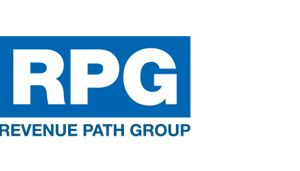Three Problems With Relationship-Based Business Development
If you talk to enough architects, you’ll quickly realize there’s a belief in the A/E/C world that relationships are the name of the game. Not that long ago, one respected marketing and business development consultant told me that 80% of new commissions come through relationships.
I don’t want to discount relationships. They’re important to us on a number of levels and, yes, if you run an architecture, engineering, or construction firm, a good portion of your work probably does come to you through some sort of relationship.
As a business development strategy though, you need to understand that things are changing.
First problem with relationships: They go away
It used to be that if you had a good relationship with the right person, all that client’s work flowed your way. In fact, when I was still working in architecture firms, I had a client who made all the facilities decisions for an extremely active and well-funded local organization. For almost 20 years he funneled all that organization’s work to us. Then he retired.
Your relationships are with human beings. They retire, change jobs, get promoted to different positions, basically experience some sort of change that makes that business development relationship less valuable to you. The relationships effectively go away.
Second problem with relationships: They’re just one person
It used to be that if you had a relationship with the right person, you could count on them to award the client’s or the prospect’s work to you. Today, decision making teams are getting bigger. There’s rarely one decision-maker. In fact, the average selection committee today is at least 6 people.
It’s not enough to have a relationship with one person. Now that your oldest, best client has a selection committee, your relationship with the Vice President isn’t enough. Your track record working with that client isn’t enough. There are 5 other people on the selection committee and that means that everyone you’re competing against may have a relationship with someone on the committee. In a simple vote, your relationship with one person on an ever-expanding selection committee loses.
Third problem with relationships: They make us lazy
Back when you had that relationship with the ultimate decision-maker, you could rely on them to advocate for you. They knew you, they’d worked with you, they trusted you and that was probably enough. Today, they’re not the ultimate decision-maker anymore and you haven’t equipped them with the tools they need to persuade the rest of the committee on your behalf.
Relationships are based on trust. In a one-to-one context that trust is usually built on experience over time. You don’t have that time anymore. Today, your clients and prospects learn about 70% of what they want to know about you before you even know they’re interested. What’s worse, you’re trying to gain the trust of a committee instead of the one person you’ve known for years. You can’t sit back and rely on that relationship to go in and carry the room. In a multiple-decision-maker world, where your prospects think you and all your competition looks the same, sounds the same and acts the same, you have to make yourself the clear choice and gain fast trust.
It’s up to you.
Keep building relationships. That still has to be part of your business development strategy. But go in with your eyes wide open. There are three keys to making the most of your business development relationships:
Have a clear message.
You need to clearly state what your convincing advantages are … the reasons why your prospects should choose you. Those advantages have to be clear enough (and stated enough) that those advocating relationships can repeat them just as easily as you can.
It’s not about you.
As experienced and qualified as you are, the decision-makers and selection committees are only interested in the firm that addresses their pains, threatsThreats What the primitive brain will act on. Whether real or perceived, the brain prioritizes acting on threats above and beyond any other action. This hurts sellers who are unable to connect the real impact of their product/service to a prospect’s threats., and fears. In order to gain fast trust, you have to demonstrate that you understand what’s keeping your prospects up at night and make your messaging all about them.
Have a conversation.
What it takes to get in the room is not the same as what it takes to win the room. That old-school relationship may have gotten you to the short-list interview, but now you’re in a room with 5 other people sitting, arms-crossed wondering why they should pick you.
You don’t know them; they don’t know you. Remember when you first met that person that’s now “your relationship”? It started with a conversation. Don’t talk about yourself like everyone else does. Win the room, and the project, by starting a conversation with them, about them. They’ll feel like you understand them, you’ll build fast-trust, and you’ll differentiate yourself from your competition.
Are you relying on old-school relationships or building fast-trust that differentiates your firm and makes you the clear choice for the right projects and the right fees?
If you don’t know how to answer that question, connect with me here on LinkedIn and let’s start winning the room.
